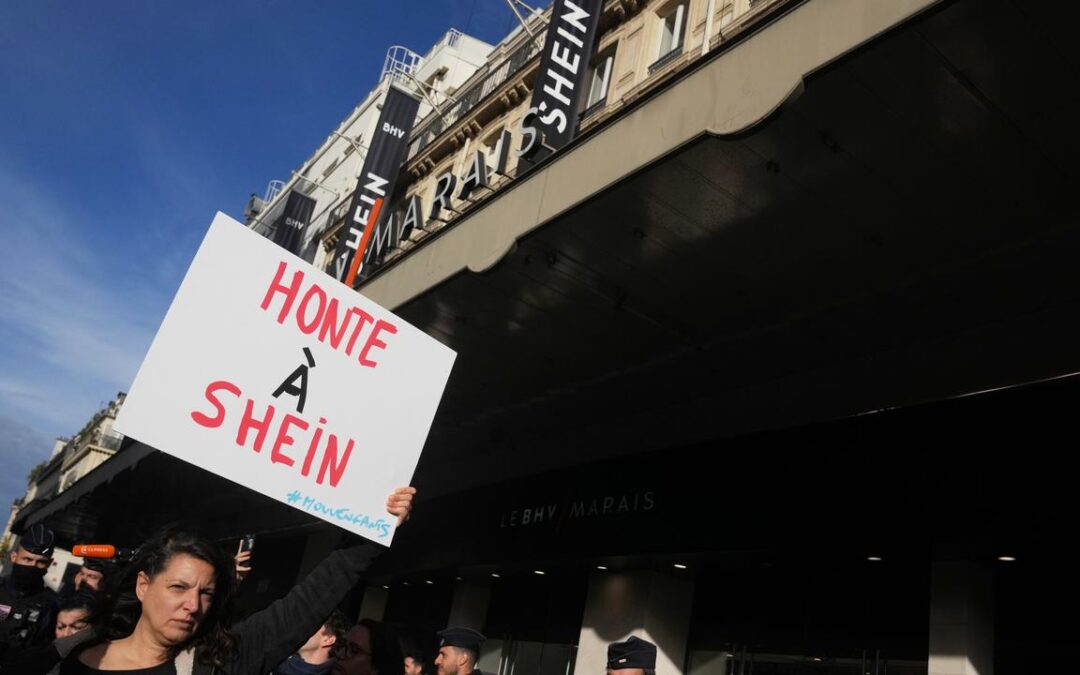
France moves to suspend Shein over sex dolls
French authorities have started proceedings to suspend online fast-fashion retailer Shein until it complies with French laws, the finance ministry says, marring the opening of Shein’s first shop in Paris department store BHV.
The discovery of child-like sex dolls on Shein’s website on Saturday fuelled an outcry.
Shein said it had sanctioned the sellers and implemented a full ban on sex dolls.
“On the Prime Minister’s instructions, the government is initiating proceedings to suspend Shein for as long as necessary for the platform to demonstrate to the authorities that all of its content is finally in compliance with our laws and regulations,” the finance ministry said in a statement.
A Shein spokesperson told Reuters the company was seeking urgent consultations with authorities over the suspension.
Shein said in a statement it was temporarily suspending its marketplace in France, a move the spokesperson said was already planned before the finance ministry’s statement.
It was not immediately clear if the planned suspension would affect its Paris store, which opened at 1pm on Wednesday.
Protesters bearing “Shame on Shein” placards had gathered outside BHV on Wednesday as the online fast-fashion retailer opened its first shop amid fierce criticism of its low-cost business model.
After queuing for hours, dozens of shoppers filed into the 19th-century BHV department store in the city’s Marais shopping district, as riot police officers brought in to shield the store looked on.
Shein’s store, which occupies 1000 square metres on the sixth floor of the BHV, has caused uproar among politicians including Paris mayor Anne Hidalgo, as well as retailers who say that Shein’s business model has an unfair advantage and has eroded French high streets.
The first shoppers to enter the store browsed rails of Shein clothes including jeans for 27.99 euros ($A51) and a black fake-leather jacket for 42.49 euros, while more still waited downstairs to be allowed in.
Shein, which sends clothes from factories in China direct to consumers in 150 countries worldwide, was approached to set up a concession by Société des Grands Magasins (SGM), which is hoping the launch will attract a younger clientele to the struggling BHV and bring benefits thanks to its ecommerce expertise.
“Every day, we’re told that physical stores are dying. Every day, we’re being told that thousands of jobs are at stake, that the French textile industry is dying, and these same critics are not the ones offering us solutions,” SGM Chairman Frederic Merlin told BFM TV.
“I believe that without innovating, the future honestly doesn’t look bright.”
France has been especially robust in its reaction to Shein and could ban it from advertising in the country under a planned law to rein in “ultra-fast” fashion that specifically targets platforms adding more than 1000 new products a day.
“We’ve been fighting this fight against Shein for two years and to see this brand set up in a historic building … that symbolises (the) French textile industry, it’s an unacceptable provocation,” said MP Anne-Cécile Violland, who spearheaded the fast-fashion law.
1800 RESPECT (1800 737 732)
National Sexual Abuse and Redress Support Service 1800 211 028
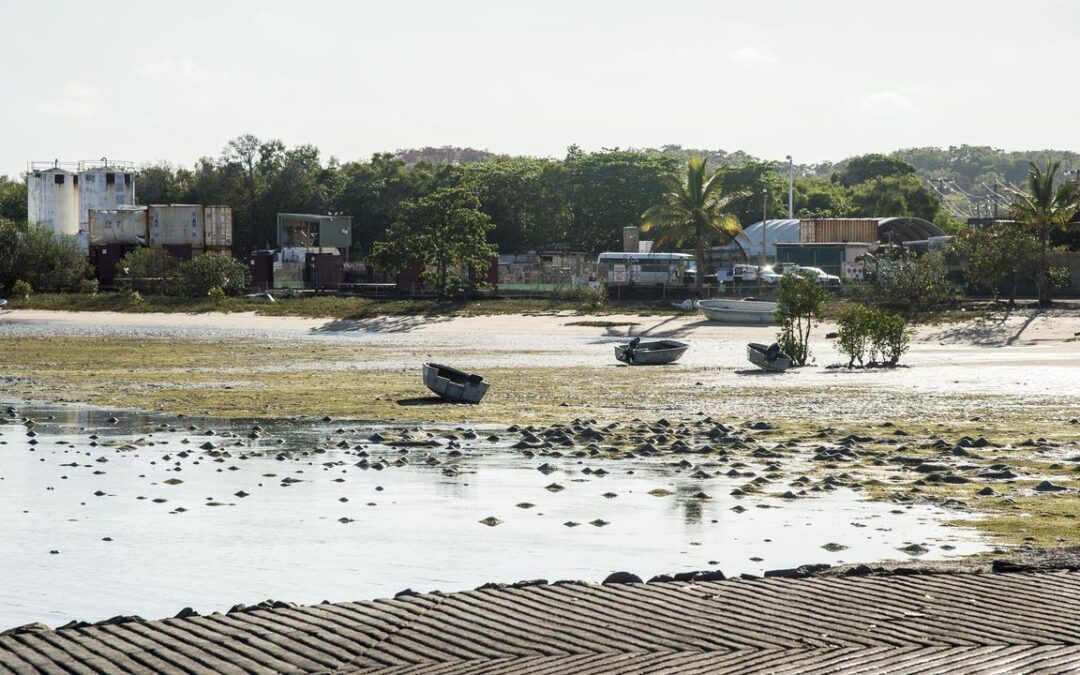
Golden eye on northern island after spot price surge
A surging gold price could return mining to the Torres Strait, with exploration firm Alice Queen taking a fresh look at its feasibility.
The company in 2021 assessed the value of gold deposits on Horn Island at $140 million based on a price of $2450 an ounce for the yellow metal.
With the spot price for gold now more than $6000 an ounce, Alice Queen is having a rethink with an updated study due in the first half of 2026.
The project was a “compelling opportunity”, managing director Andrew Buxton said.
“The company is continuing to review partnering opportunities, however is also now progressing a review of the economics of the 2021 Scoping Study in connection with exploring direct funding opportunities,” Alice Queen said in a statement to the ASX.
“With the current significant surge in gold price, the underlying value of the project is expected to increase substantially.”
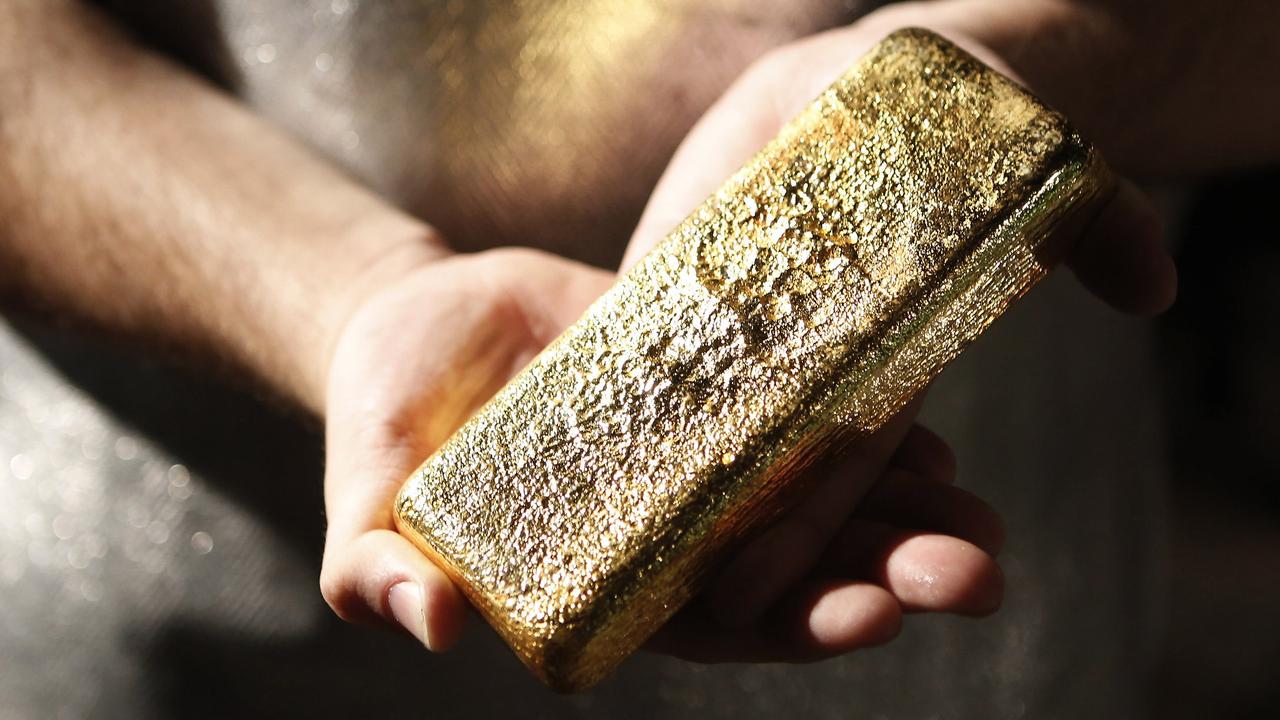
The 2021 study included an average production rate of 37,000 ounces of gold annually and an 8.5-year mine lifespan.
It also proposed initial capital expenditure of $75 million with “all-in sustaining costs” of $1388 an ounce.
Alice Queen will also review the mineral resource estimate with mining consultant RSC, while GBA Capital will act as a strategic adviser for the project.
Horn Island, home to fewer than 1000 people, is among a clutch of islands between Queensland and Papua New Guinea that comprise the Torres Strait.
European settlers first mined for gold on Horn Island in the late 19th century, while a 1980s attempt to begin an open-pit operation lasted two years and required environmental remediation.
The announcement did not move the dial on Alice Queen’s trading price, which remained at $0.005 on Wednesday.
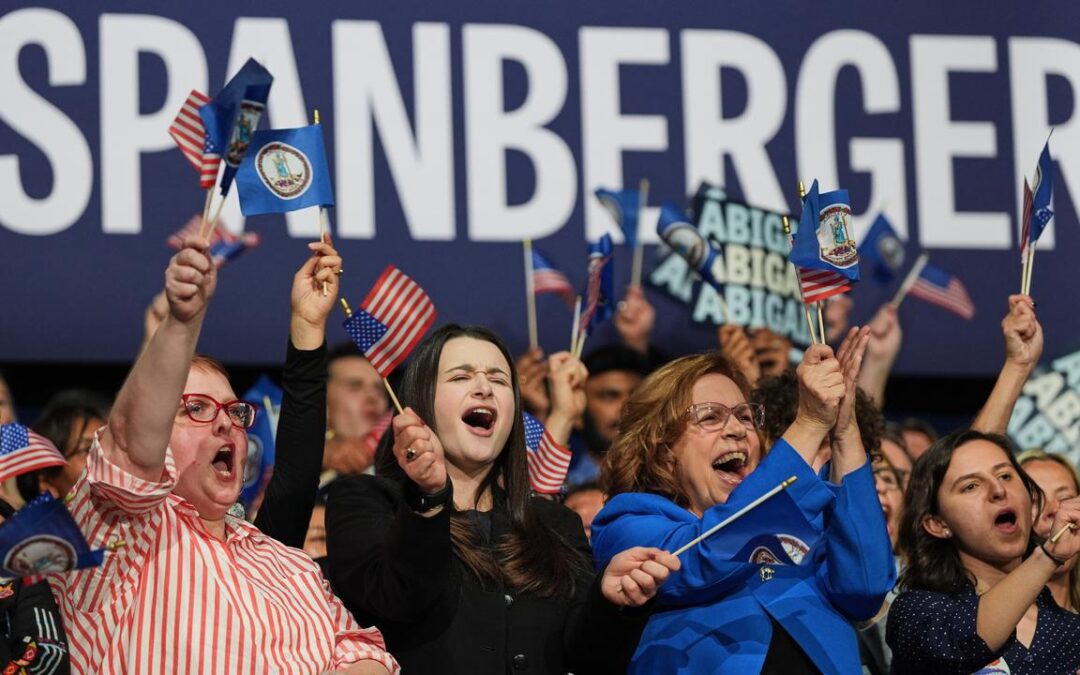
Democrats sweep first major test of Trump’s second term
Democrats have swept a trio of races in the first major elections since Donald Trump regained the presidency, giving the beleaguered party a shot of momentum as it looks ahead to the congressional midterm elections in 2026.
In New York City, Zohran Mamdani, a 34-year-old democratic socialist, won the mayoral race, capping a meteoric and unlikely rise from an anonymous state lawmaker to one of the country’s most visible Democratic figures.
And in Virginia and New Jersey, Democrats Abigail Spanberger and Mikie Sherrill won the elections for governor with commanding leads, respectively.
The contests offered a barometer of how Americans are responding to Trump’s tumultuous nine months in office.
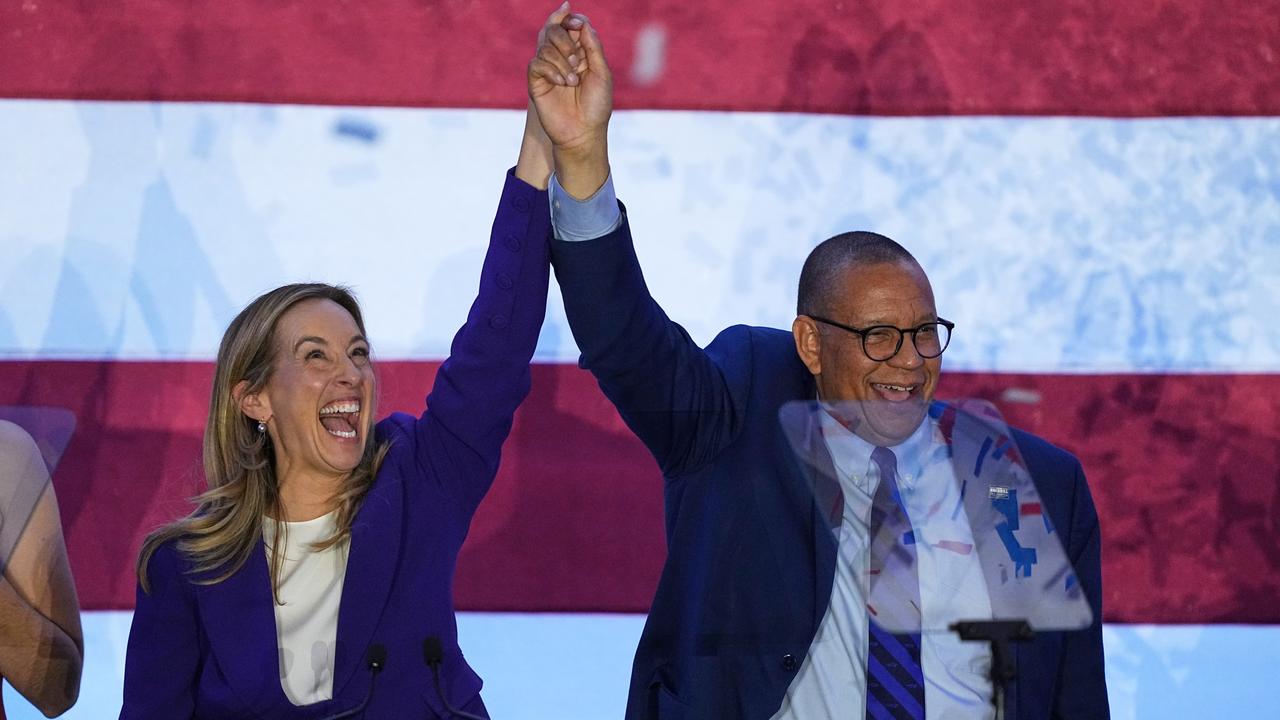
The races also served as a test of differing Democratic campaign playbooks ahead of 2026, with the party locked out of power in Washington and still trying to forge a path out of the political wilderness.
That said, the midterm elections are a year away, an eternity in the Trump era. And the contests on Tuesday, US time, all unfolded in Democratic-leaning regions that did not support Trump in the 2024 presidential election.
All three Democratic candidates emphasised economic issues, particularly affordability. But Spanberger and Sherrill hail from the party’s moderate wing, while Mamdani used a viral video-fuelled insurgent campaign to present himself as an unabashed progressive and a new generational voice.
Mamdani, who will become the first Muslim mayor of the biggest US city, outlasted former Democratic governor Andrew Cuomo, 67, who ran as an independent after losing the nomination to Mamdani earlier in 2025.
In a social media post on Tuesday night, Trump blamed the losses on the fact his name was not on the ballot and on an ongoing federal government shutdown.
Spanberger, who beat Republican Lieutenant Governor Winsome Earle-Sears, will take over from Republican Governor Glenn Youngkin in Virginia.
New Jersey’s Sherrill defeated Republican Jack Ciattarelli and will succeed Democratic Governor Phil Murphy.
Both Sherrill and Spanberger had sought to tie their opponents to Trump in an effort to harness frustration among Democratic and independent voters over his chaotic tenure.
“We sent a message to the world that in 2025 Virginia chose pragmatism over partisanship,” Spanberger said in her victory speech. “We chose our Commonwealth over chaos”.
For Republicans, Tuesday’s elections served as a test of whether the voters who powered Trump’s victory in 2024 will still show up when he is not on the ballot.
But Ciattarelli and Earle-Sears, both running in Democratic-leaning states, faced a conundrum: criticising Trump risked losing his supporters, but embracing him too closely could have alienated moderate and independent voters who disapprove of his policies.
Trump remains unpopular: 57 per cent of Americans disapprove of his job performance, a Reuters/Ipsos poll showed.
But Democrats are not gaining support as a result, with respondents evenly split on whether they would favour Democrats or Republicans in 2026.
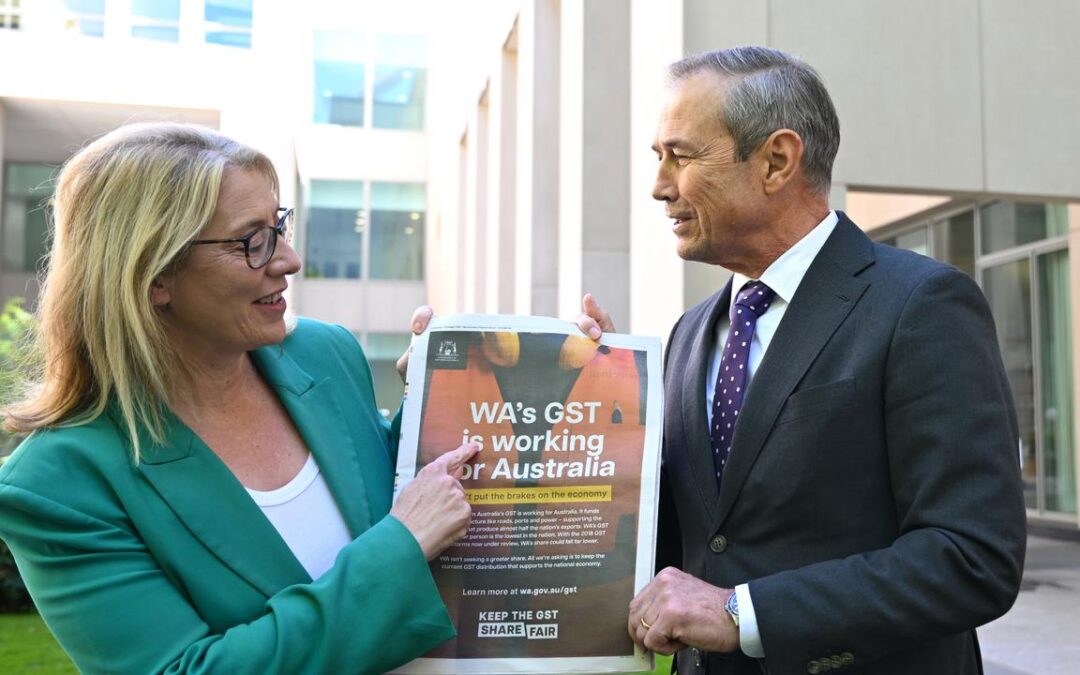
WA premier reckons GST deal is good for Australia
West Australian leaders are stepping up their defence of the resource-rich region’s beneficial GST deal as eastern states target the contentious agreement.
Premier Roger Cook and Treasurer Rita Saffioti travelled to Canberra in an attempt to convince their federal Labor counterparts what is good for the state’s economy also benefits the nation’s bottom line.
The GST arrangements, which eastern states argue unfairly benefit WA, are now under review by the Productivity Commission which is due to report by the end of 2026.
WA launches campaign to keep GST dealThe WA government has launched a $1 million advertising campaign in response to convince its federal counterpart to stick with the status quo.
“It’s critical that WA keeps its fair share of the GST,” Mr Cook told reporters in Canberra on Wednesday.
“Any reduction in the floor wouldn’t just have a direct impact on the state’s economy, it would impede national economic growth as well,” he said.
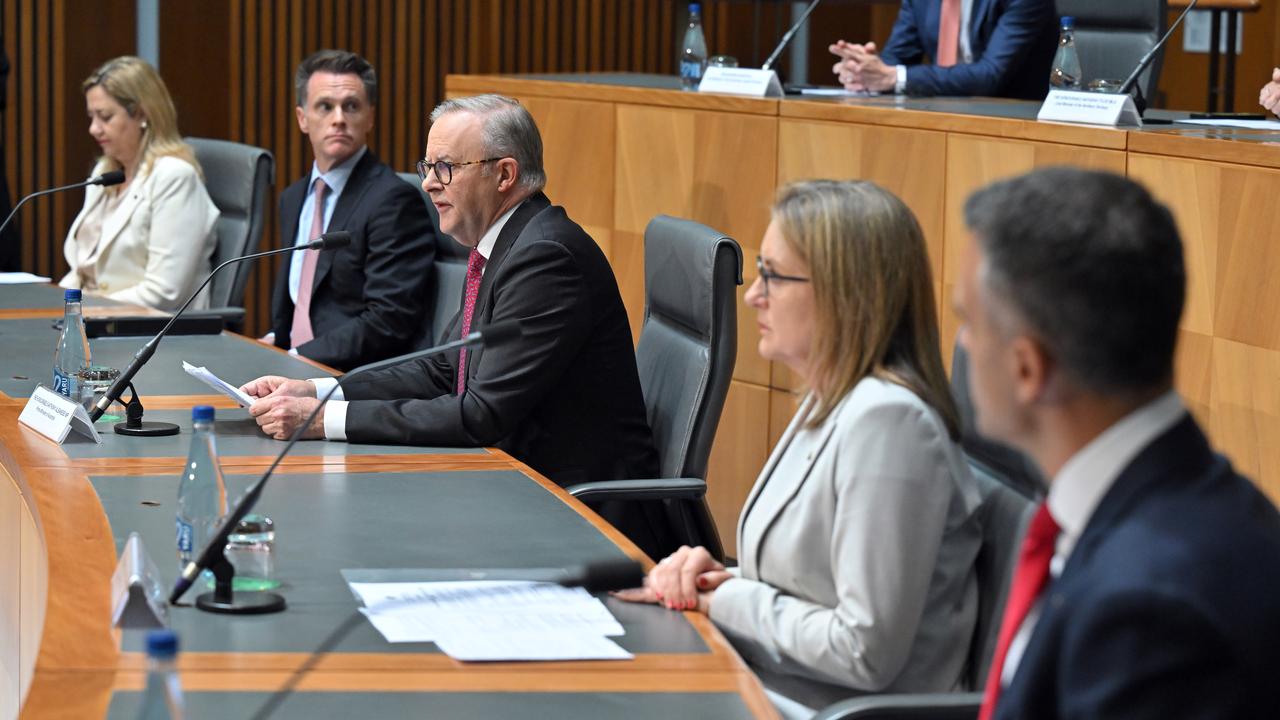
After meeting with him on Tuesday, Mr Cook said Prime Minister Anthony Albanese remained supportive of the arrangement.
When it was established in 2000, the goods and services tax was devised to send revenues into a national pool which is then divided between states and territories based on need.
As the mining boom took off in the 2000s and its resource royalties skyrocketed, WA went from being one of the poorer states to the richest per capita, meaning its share of GST spoils plummeted to the lowest per capita.
In the lead-up to the 2019 election and with WA pivotal to the then-Morrison government’s survival, a deal was struck to implement a funding floor to ensure no state received less than 75 cents per dollar raised in that jurisdiction.
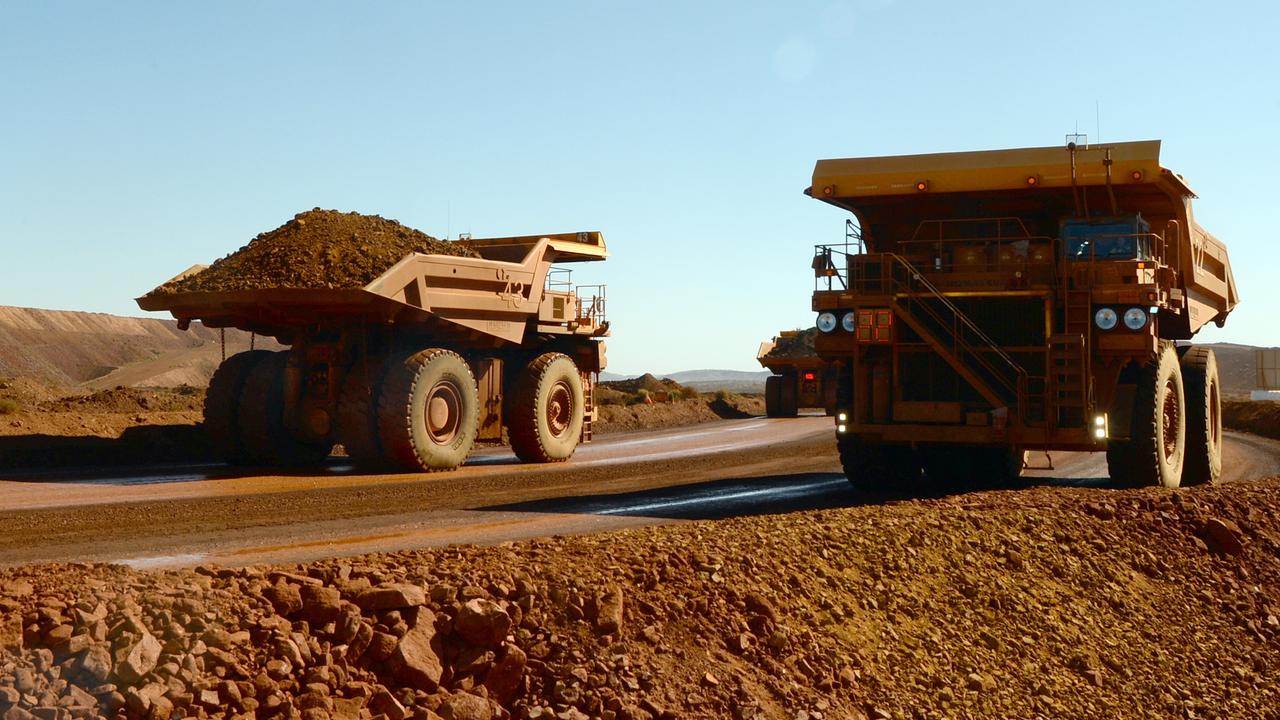
As of 2025, the taxpayer-funded measure had cost the nation more than $24 billion, according to economist Saul Eslake, one of the deal’s most outspoken critics.
The Morrison government and its successors, “caved in to what was in effect blackmail by Australia’s richest states”, he said.
“My criticism is of federal politicians who’ve put the basest of political motives ahead of the national interest,” he told the ABC.
NSW and other eastern states have long complained about the Morrison government’s changes and an opaque GST distribution system they say leads to unpredictable budget cashflows.
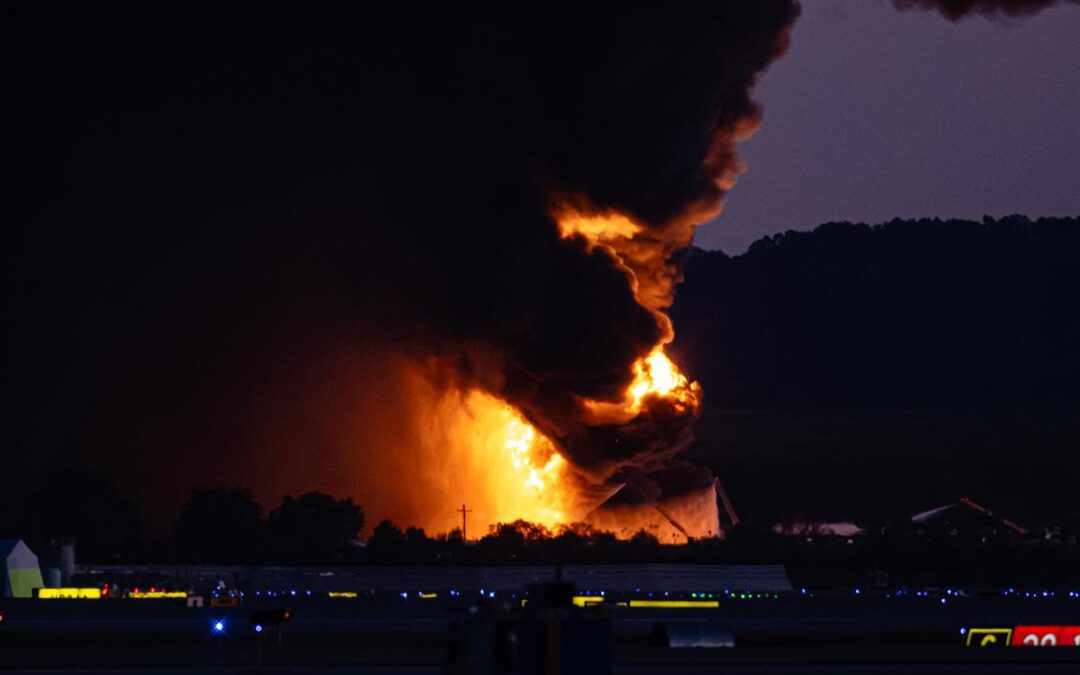
At least three dead, 11 hurt as US cargo plane crashes
A large cargo plane with three people on board has crashed and exploded while taking off from an airport in Louisville, Kentucky, leaving at least three people dead and 11 injured.
Those numbers are expected to grow, the governor said. The plane crashed as it was departing for Honolulu from Louisville’s Muhammad Ali International Airport, the US Federal Aviation Administration said.
Video showed flames on the plane’s left wing and a trail of smoke. The plane then lifted slightly off the ground before crashing and exploding in a huge fireball.
Video also revealed portions of a building’s shredded roof next to the end of the runway.
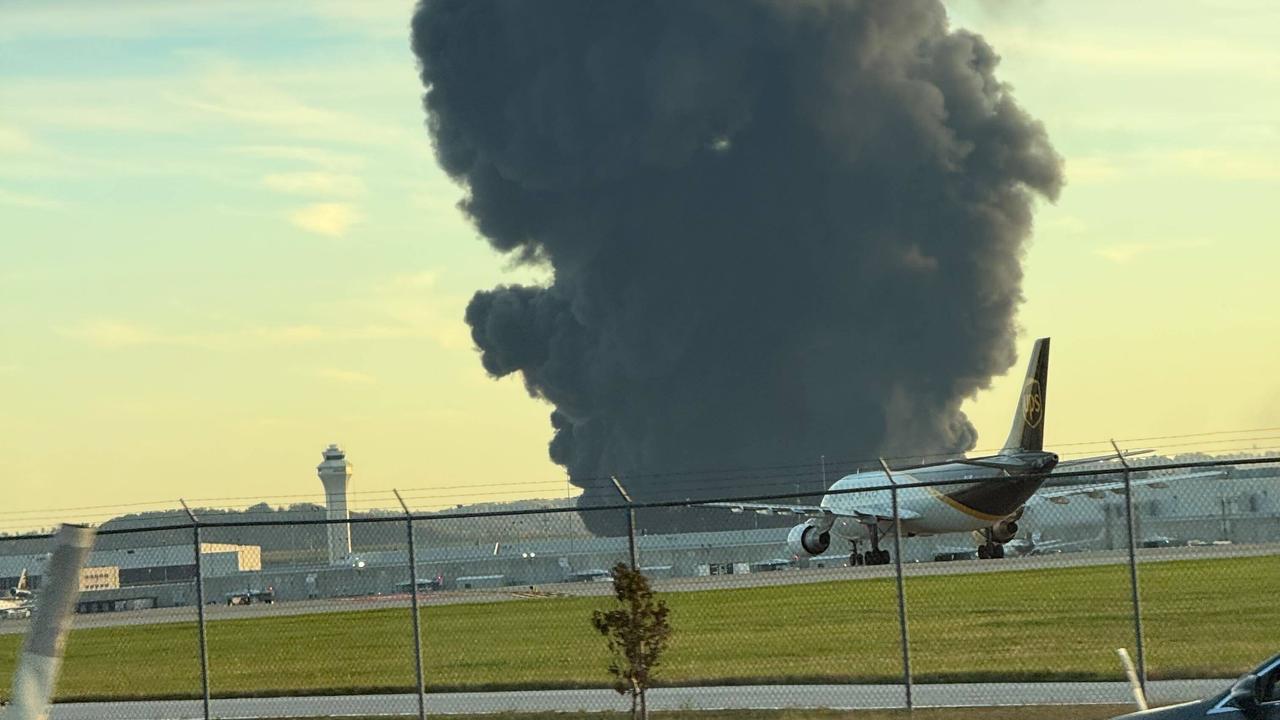
“We believe we have at least three fatalities. I believe that number is going to get larger,” Kentucky Governor Andy Beshear said at a press briefing.
“Anybody who has seen the images in the video know how violent this crash is”.
The plane had three crew members on board, according to UPS.
The crash has drawn a massive response, including from police and fire agencies, and because of the flames, some responders “have had to shelter behind different things”, Beshear said.
“It is still a very dangerous situation with different flammables or potentially explosive materials,” Beshear said.
Mayor Craig Greenberg told broadcaster WLKY-TV that fuel on the plane was an “extreme reason for concern in so many different ways”.
“There are multiple injuries and the fire is still burning. There are many road closures in the area – please avoid the scene,” Greenberg said in a social media post.
UPS’s largest package handling facility is in Louisville. The hub employs thousands of workers, has 300 daily flights and sorts more than 400,000 packages an hour.
A shelter-in-place order was extended to all areas north of the airport to the Ohio River after the crash, which occurred at 5.15pm on Tuesday, local time.
The Louisville airport is only a 10-minute drive from the city’s downtown, which sits on the river bordering the Indiana state line. There are residential areas, a water park and museums in the area.
The McDonnell Douglas MD-11 airplane owned by UPS was manufactured in 1991.
With Reuters
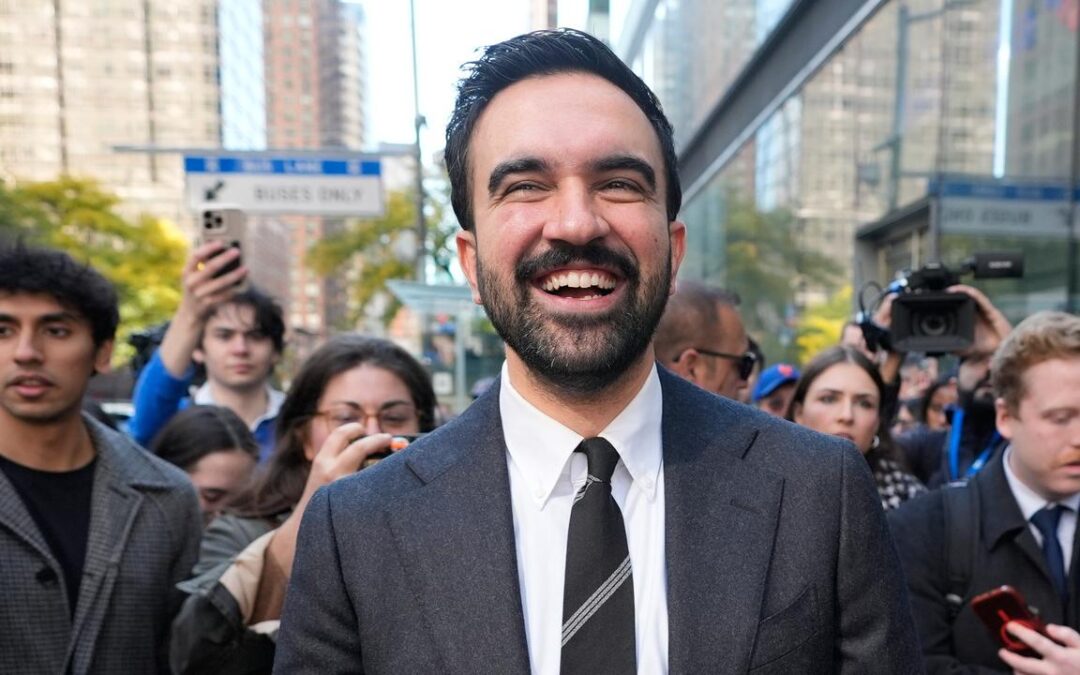
NYC voters choose next mayor as Mamdani faces Cuomo
New York City’s voters are deciding the outcome of a generational and ideological divide that will resonate across the US as they choose the next mayor to run the nation’s largest city.
Zohran Mamdani, who won the Democratic primary earlier in 2025, faces former governor Andrew Cuomo, who is running as an independent, and perennial Republican candidate Curtis Sliwa, who is trying to land a massive upset.
A victory for 34-year-old Mamdani would give the city its first Muslim mayor and its youngest leader in generations, while elevating the democratic socialist to political stardom and giving his brand of economic populism one of the most visible political perches in America.
If Cuomo comes out on top, he will have staged a remarkable political comeback four years after resigning as governor over a barrage of sexual harassment allegations.
For Sliwa — the creator of the Guardian Angels crime patrol group and a longtime New York tabloid fixture — a win would put a Republican in charge of the nation’s largest city at a time when many New Yorkers are seeking a leader who can keep President Donald Trump at bay.
Mamdani and Cuomo voted on Tuesday morning local time in Queens and Manhattan, respectively, while Sliwa had already cast his ballot during early voting.
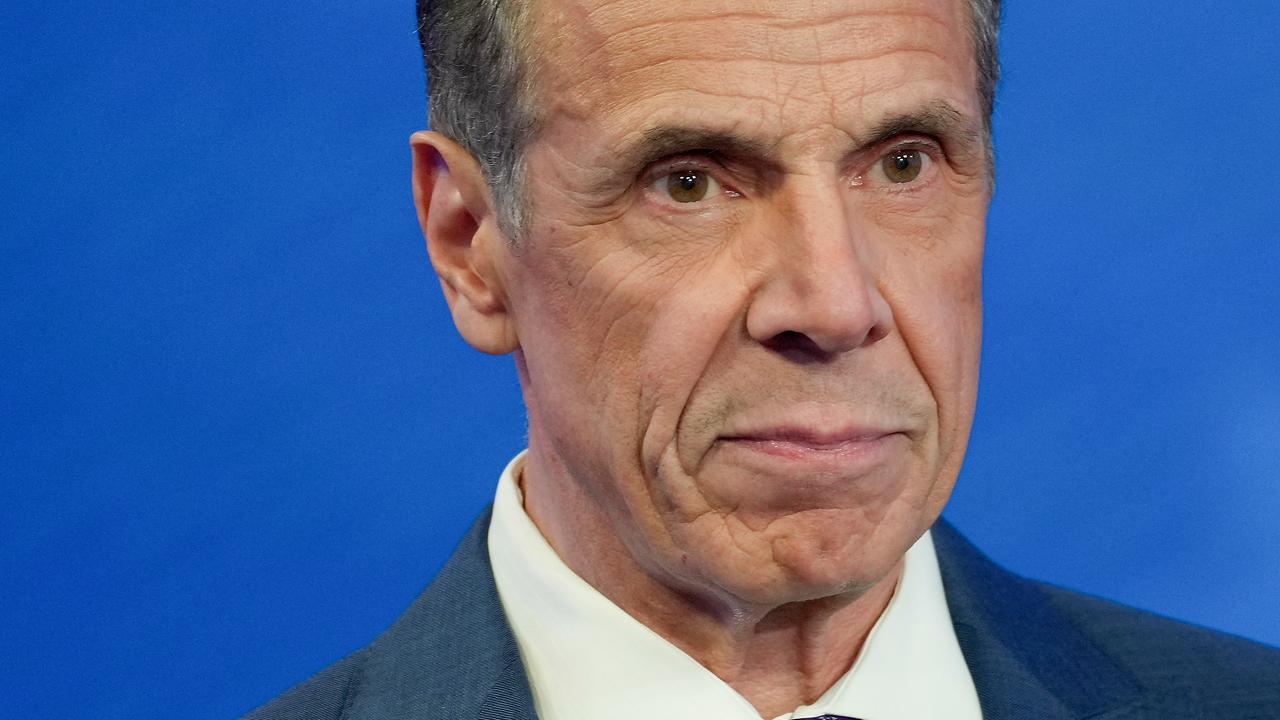
The race has made Mamdani a national figure as he has drawn the ire of Trump and other Republicans, who have tried to cast him as the face of a new, more radical Democratic Party.
Trump has also threatened to take over the city if Mamdani wins, as well as arrest and deport the state assembly member, who was born in Uganda but is a US citizen.
Trump reluctantly endorsed Cuomo on the eve of the election, saying Mamdani would bring “disaster” to the city and encouraging Sliwa backers to vote for the former governor instead.
Cuomo resigned as governor in 2021 following a report from the attorney general that concluded he had sexually harassed at least 11 women.
Cuomo initially apologised for some of his behaviour, saying he had fallen out of step with what is considered appropriate workplace conduct.
However, in recent months, he has been defiant — calling his accusers liars and blaming his downfall on political adversaries.
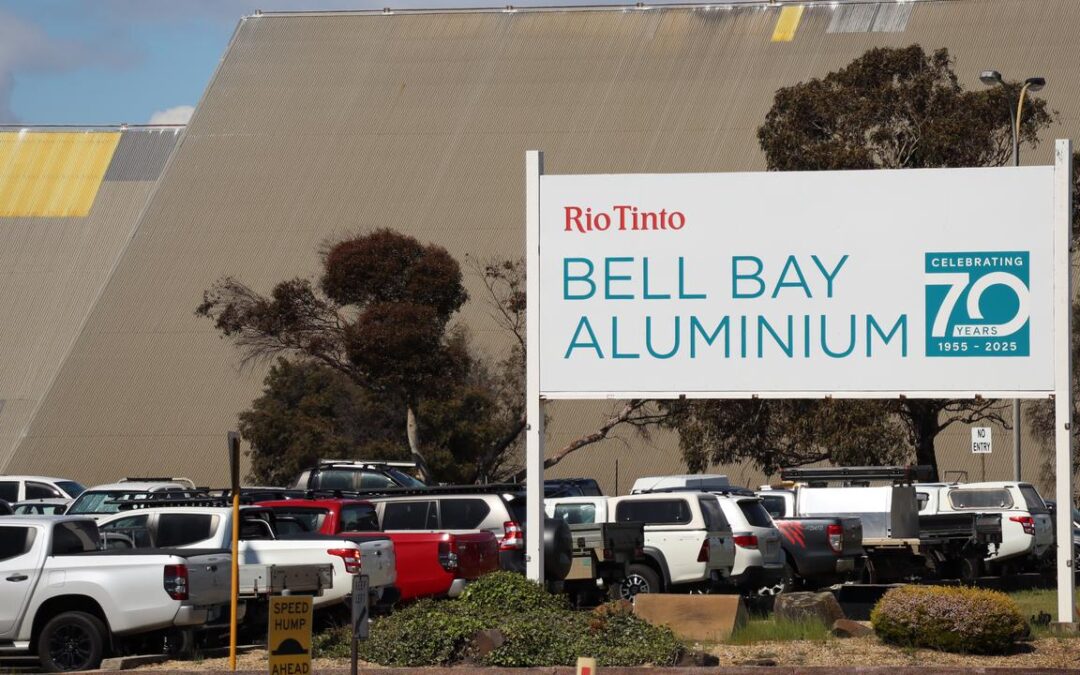
Power deal inked to secure smelter’s short-term future
The immediate future of the Southern Hemisphere’s first aluminium smelter is more secure, after the signing of a power agreement.
Tasmania’s Bell Bay Aluminium, which is owned by Rio Tinto, was under a cloud amid stalled discussions for a new deal with state-owned electricity provider Hydro Tasmania.
The smelter in the state’s north employs more than 500 people – its decade-long deal with Hydro was set to expire on December 31.
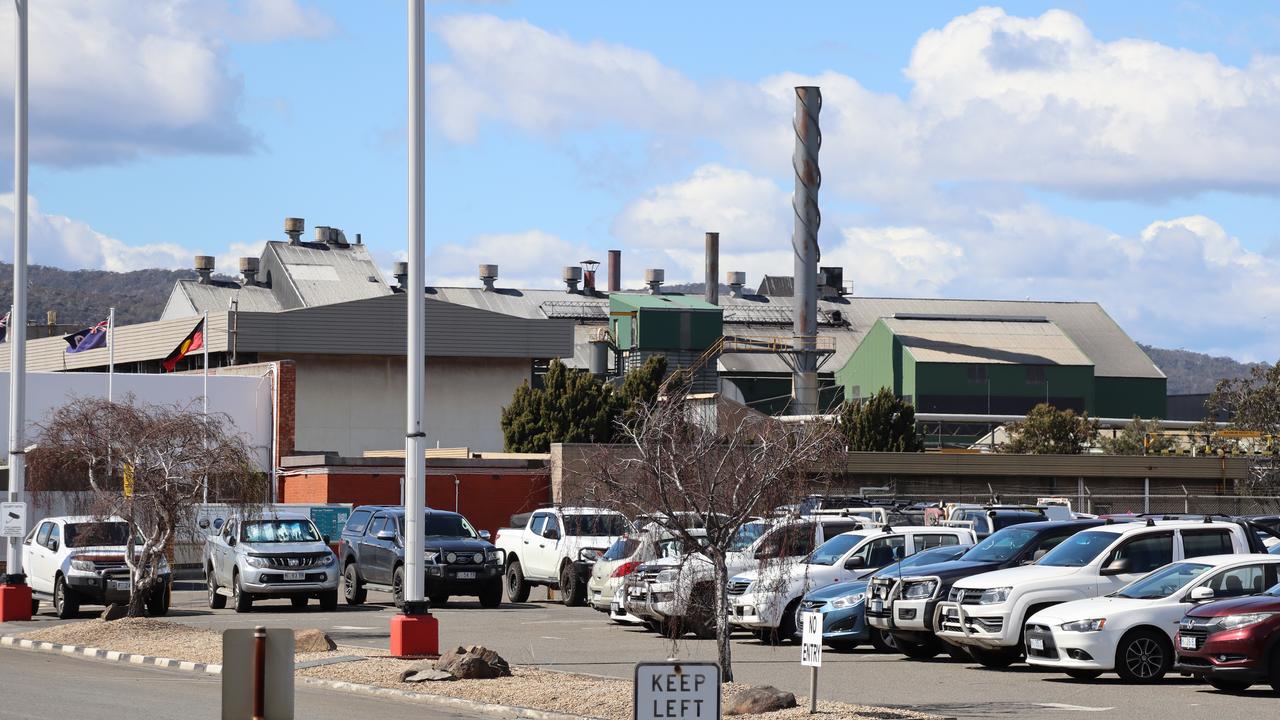
The state government on Wednesday said a 12-month agreement had been reached allowing time for work to continue on a long-term plan for the smelter.
“The smelter is a cornerstone of Tasmania’s economy,” Premier Jeremy Rockliff said in a statement.
“We are doing all we can to make sure the business continues to have a strong future in the state.
“It is important all governments continue to work together with Rio Tinto to secure the future of Bell Bay Aluminium, one of Australia’s greenest smelters.”
Mr Rockliff said his government would continue to lobby Canberra for money, after recent lifelines were provided for several major industrials.
The Australian and Queensland governments in October unveiled $600 million in support for the Mt Isa copper smelter and Townsville copper refinery over three years.
Federal government support was necessary to provide Bell Bay Aluminium with a sustainable operating trajectory, Tasmania’s Energy and Renewables Minister Nick Duigan said.
“It would be a perverse outcome for the federal funding arrangements to exclude the nation’s principal green aluminium smelter,” he said.
Mr Duigan said he expected Hydro Tasmania to provide a competitive, commercial energy price consistent with its obligations to put Tasmanian jobs and the economy first.
The smelter began operating in 1955 and exports more than 90 per cent of its output, primarily to southeast Asia, east Asia and India.

Reddit to be captured under social media ban for kids
Kids will also be banned from Reddit and live-streaming platform Kick when Australia’s social media age restrictions take effect.
Children under age 16 will be booted off social platforms from December 10, with exceptions for health and education services including WhatsApp and Meta’s Messenger Kids.
The Albanese government announced the world-leading reforms will also apply to Reddit and Kick.
Facebook, Instagram, Snapchat, TikTok, YouTube and X are among the platforms that will need to take “reasonable steps” to prevent under-16s from holding accounts.

Tech giants that fail to do so will face fines of up to $49.5 million.
Social media users cannot be forced to provide government-issued ID as the sole method to prove their age online and must be offered other options.
The law puts the onus for compliance on the tech companies to “detect and deactivate or remove” accounts from underage users.
About 1.5 million accounts on Facebook, Instagram, YouTube, TikTok, Threads and X will be deactivated in less than two months as a result.
Julie Inman Grant, the eSafety Commissioner, previously wrote to Reddit and other platforms asking them to self-assess whether they would be captured under the ban.
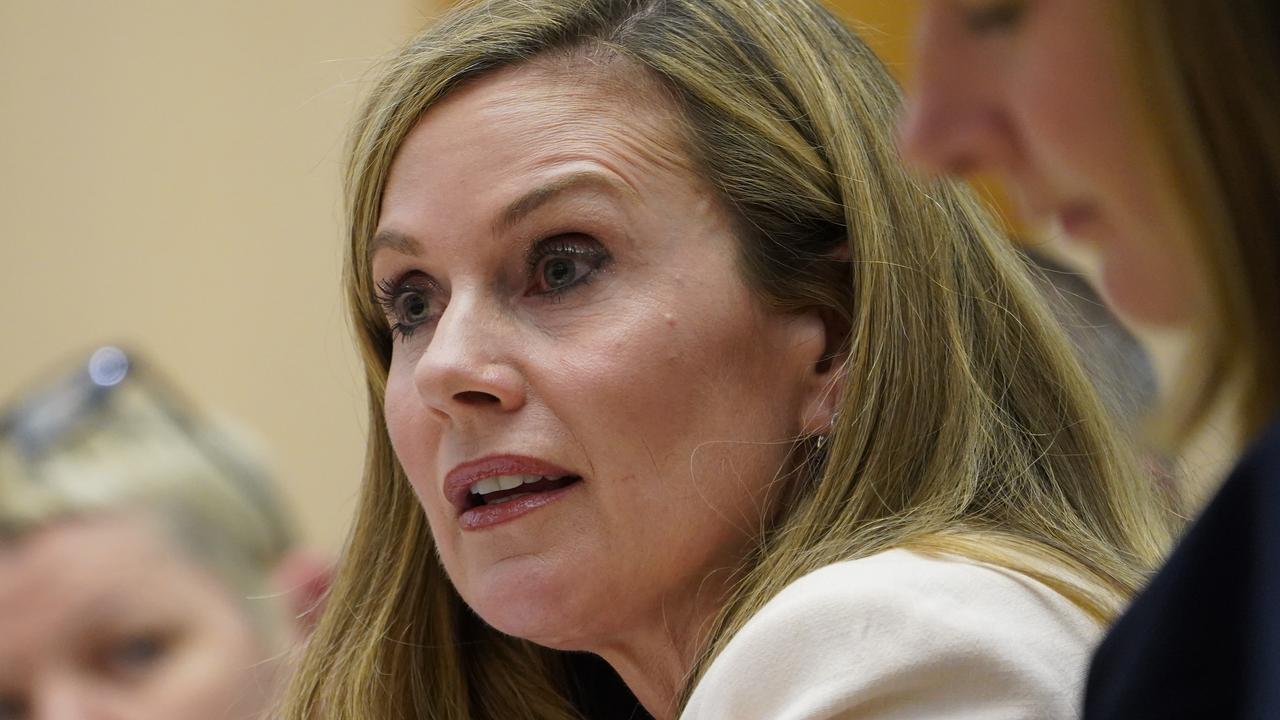
Communications Minister Anika Wells said she had met with major social media platforms in the past month so they “understand there is no excuse for failure in implementing this law”.
“ESafety has assessed eight platforms as requiring age restriction but their assessments will be ongoing and this list is dynamic,” she said.
“We aren’t chasing perfection. We are chasing a meaningful difference.”
Ms Grant encouraged parents and young people to download the commission’s resources and register for a live webinar where questions about the social media age restrictions can be answered.
“Delaying children’s access to social media accounts gives them valuable time to learn and grow, free of the powerful, unseen forces of opaque algorithms and endless scroll,” she said.
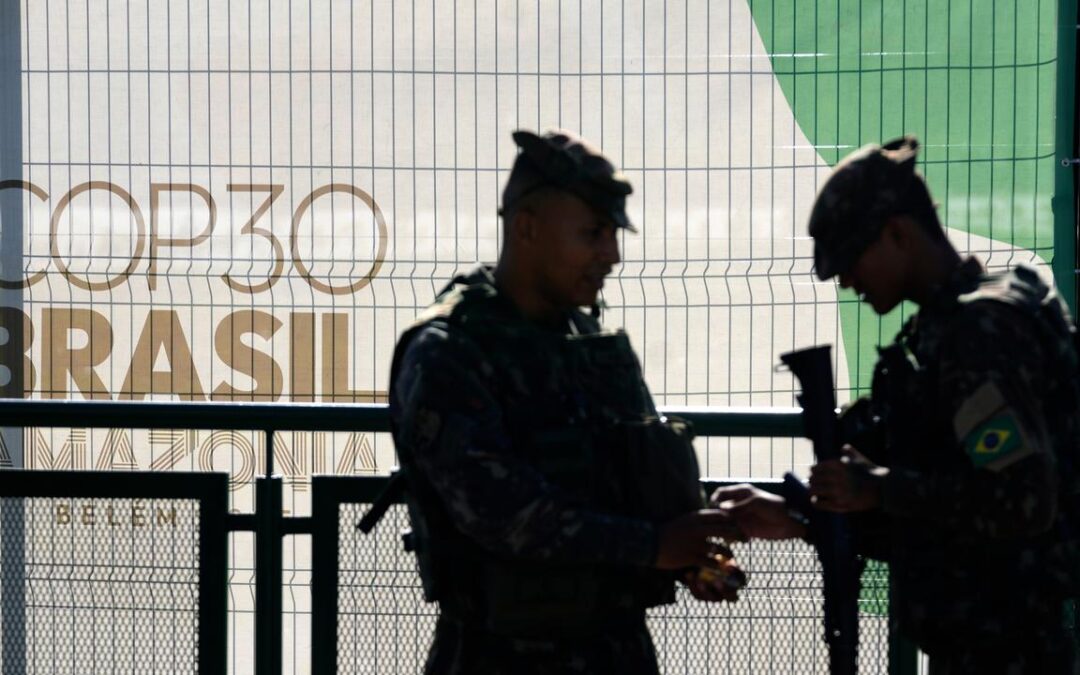
World will overshoot 1.5C climate goal, UN report says
The world has failed to meet its main climate change target of limiting the rise in global temperatures to 1.5C, and will likely breach this threshold in the next decade, the United Nations’ Environment Programme says.
The annual Emissions Gap report said because of countries’ slow action to reduce planet-heating greenhouse gas emissions, it was now clear that the world would exceed the core target of the 2015 Paris Agreement – at least temporarily.
“This will be difficult to reverse – requiring faster and bigger additional reductions in greenhouse gas emissions to minimise overshoot,” UNEP said.
Lead report author Anne Olhoff said deep emissions cuts now could delay when the overshoot happens “but we can no longer totally avoid it”.
The 2015 Paris Agreement commits countries to limit the global average temperature rise to 2C above pre-industrial levels, and to aim for 1.5C.
Yet governments’ latest pledges to cut emissions in future, if met, would result in the world facing 2.3-2.5C of warming, UNEP said.
This is about 0.3C less warming than the UN’s projection a year ago – indicating that new emissions-cutting plans announced this year by countries including top carbon dioxide emitter China have failed to substantially close the gap.
China pledged in September to cut emissions by seven to 10 per cent from their peak by 2035.
Analysts note the country tends to set modest targets and exceed them.
The findings add pressure to the UN’s COP30 climate summit this month, where countries will debate how to kick-start and finance faster action to rein in global warming.
The Paris Agreement temperature goals were based on scientific assessments of how each increment of global warming fuels worse heatwaves, droughts and wildfires.
For example, 2C of warming would more than double the share of the population exposed to extreme heat, compared with 1.5C .
Warming of 1.5C would destroy at least 70 per cent of coral reefs, versus 99 per cent at 2C.
Current policies – the ones countries already have in place – would lead to even more warming, of about 2.8C, UNEP said.
The world has made some progress.
A decade ago, when the Paris Agreement was signed, the planet was on course for about a 4C temperature rise.
But heat-trapping CO2 emissions continue to rise as coal, oil and gas is burned to power countries’ economies.
Global greenhouse gas emissions increased by 2.3C in 2024, to 57.7 gigatonnes of CO2 equivalent, UNEP said.
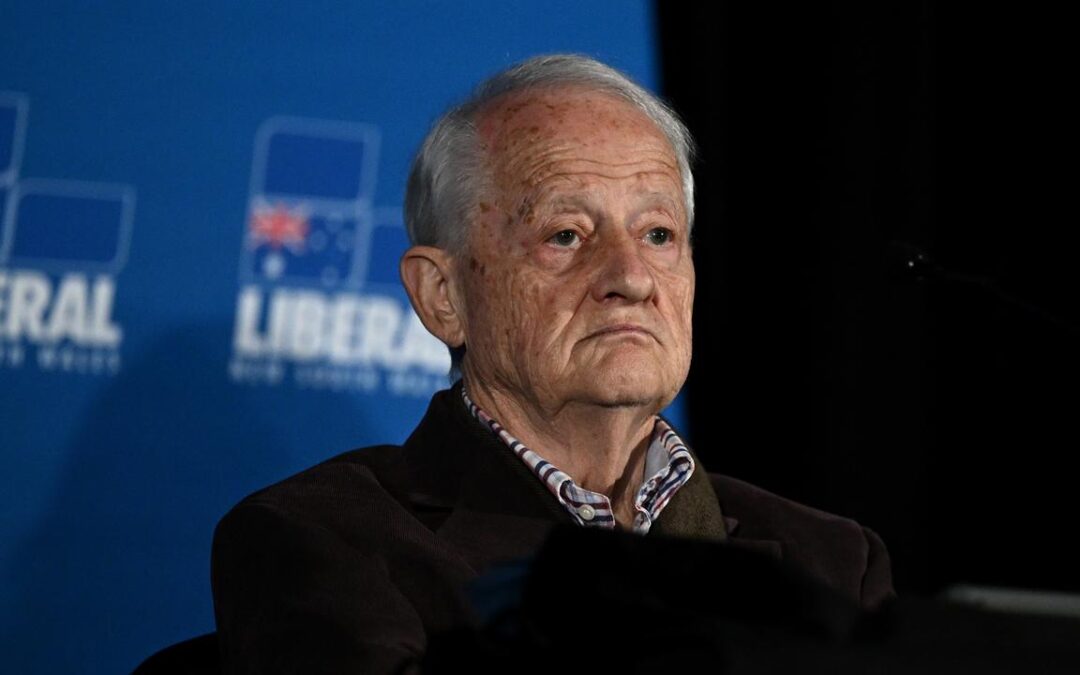
Liberal elder blasts Nationals over net zero stance
A Liberal elder has blasted the Nationals for breaking with their coalition partner over net zero by 2050 as Opposition Leader Sussan Ley prepares to unveil a long-awaited climate and energy policy.
Liberal MPs and senators will meet in the next fortnight to thrash out the final details of a new energy plan after rifts were exposed about what direction the coalition should take after Labor’s landslide election win in May.
Internal debate over the coalition’s energy policy was given new impetus over the weekend when the Nationals announced they were abandoning any commitment to net zero by 2050.
Phillip Ruddock, the second-longest-serving MP in Australian history, questioned the regional party’s decision to go its own way on the issue.
“The idea that you meet separately and say this is our stand, and if you don’t like it you’re on your own, is not a very sound coalition,” he told AAP.
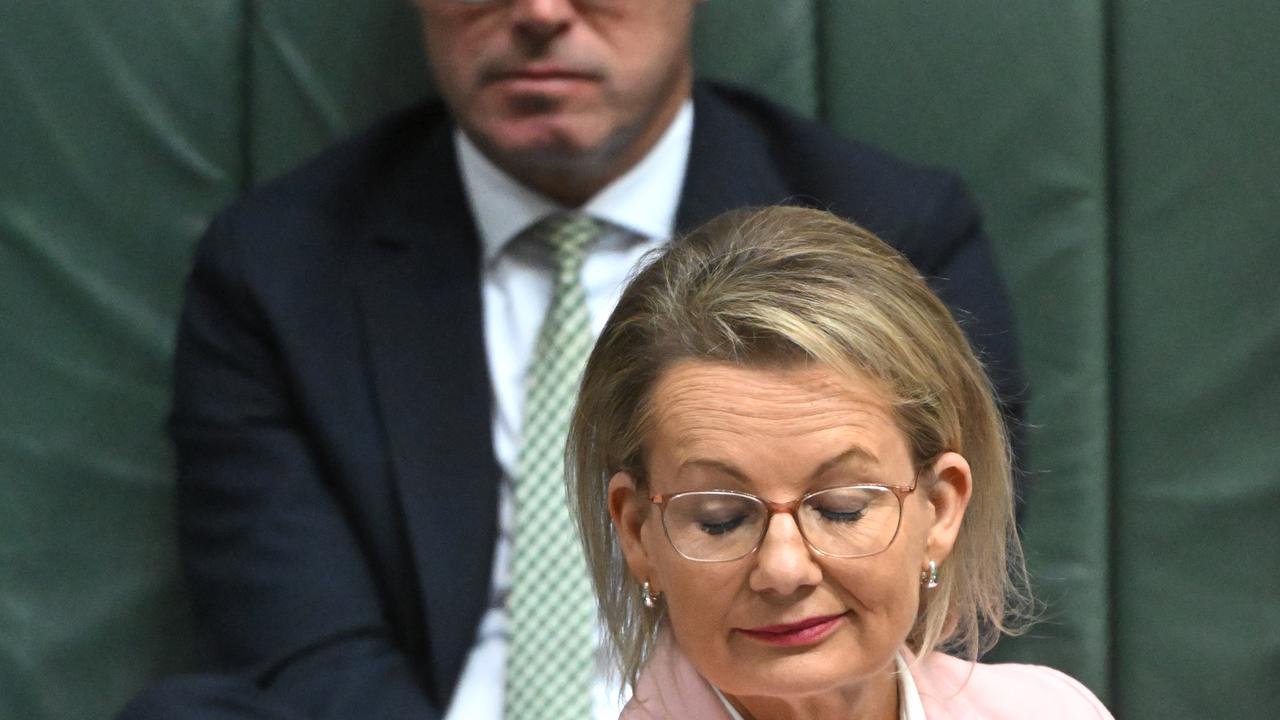
Mr Ruddock said the coalition was best served by the Liberals and Nationals working together as a team.
In walking away from net zero, the Nationals believe emissions reductions should be pegged to an average of similar countries within the OECD.
The move, followed by a dire poll revealing support for the Liberals had hit historic lows, prompted speculation that Ms Ley’s days in the party’s top job may be numbered.
Some Liberals, mostly from the conservative flank, have been undermining their leader publicly and privately.
Mr Ruddock urged MPs to work together.
“I am of the view that you do best when you have a team, and not a team of champions,” he said.
A date is yet to be locked in for the Liberals’ meeting on energy policy, although November 23 has been flagged as it’s the Sunday before the final parliamentary fortnight of the year.
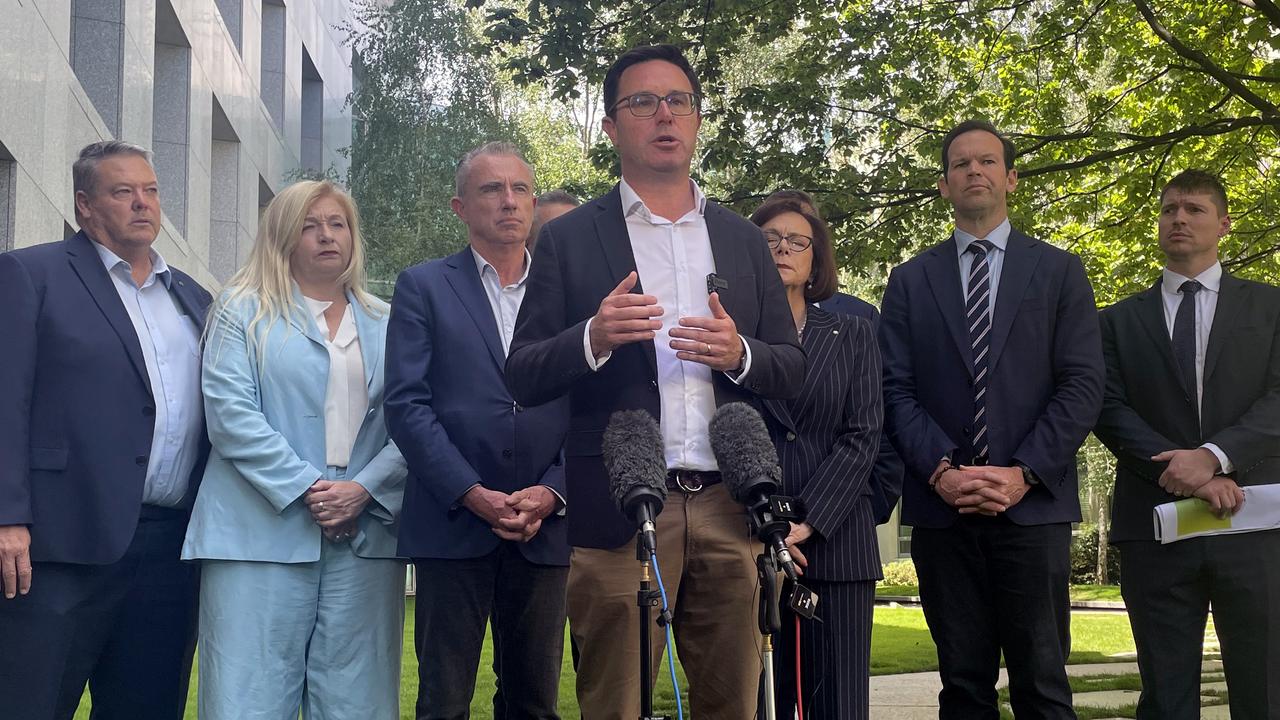
MPs want the debate sorted before parliament rises for the year.
Party insiders have also played down the prospects of a leadership spill this year over the issue.
Moderate Liberal senator Andrew Bragg said Australia would become a “pariah state” if it ditched its 2050 target.
Fellow frontbencher Tim Wilson said Ms Ley needed to stand up for the Liberals and their right to make their own decisions on policy.
He praised his leader for standing up to the Nationals when the coalition briefly split earlier in the year.
“She stood her ground because she knows that once she loses moral authority, you can’t get it back,” Mr Wilson told Sky News.